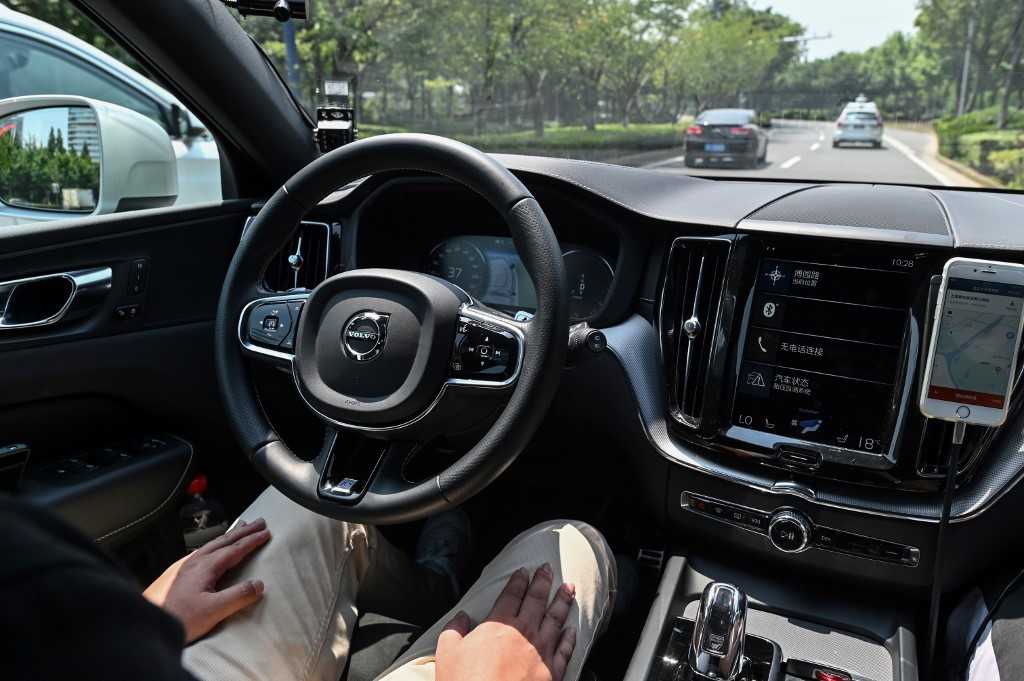Road test: Chinese 'robotaxis' have riders for a spin

Image collected
Chinese entrants on the race to place autonomous vehicles on the highway are bringing "robotaxis" over the internet in hopes a hired-car format could possibly be the key to unlocking extensive acceptance of the futuristic technology.
It is likely to come to be years before autos that operate completely without man intervention are unleashed due to lingering technological, regulatory, and safety hurdles.
But as China issues US tech dominance, Chinese players such as Baidu, Alibaba-backed AutoX and ride-posting king DiDi Chuxing recently launched autonomous taxi pilot tasks in places around the country.
Similar efforts are in way in the US, and AutoX's chief executive Xiao Jianxiong told AFP the first fully-autonomous vehicles could possibly be on the roads by the finish of the year.
Robotaxis or delivery companies are considered suitable for accumulating the driving time and huge info cache needed for vehicles to "learn" and become safe enough.
Chinese consumers -- known for eagerly embracing e-commerce, online payments and additional digital solutions -- are lining up for a spin on DiDi Chuxing's self-produced autonomous taxis at a Shanghai pilot project launched in June.
Underlining the work-in-progress character of the idea, a DiDi staffer occupies the driver's seat, ready to have the wheel if wanted.
'Smooth' running
"I heard businesses like Uber or Tesla had been doing autonomous driving, therefore i was curious what Chinese corporations were doing, whether they can go into development, and if so, exactly what will the (riding) experience end up like," she said.
"It was extremely smooth," Da explained, adding that she'd feel safe in that car.
Test subjects use DiDi's mobile software to plot a trip through suburban roads found in a good Volvo fitted with a good crown of tech hardware topped by a spinning radar device.
The automobile confidently sets out, accelerating, braking, signalling and turning alone in real traffic as a lady voice calmly narrates: "Yielding for crosswalk"; "Your vehicle has been disinfected".
When a sizable truck abruptly swerved in the front, DiDi's AI driver effortlessly applied the brake.
Like any student driver, however, it still needs practice.
At one stop signal, it braked as a result abruptly that passengers lurched forward.
And any impromptu deviation from the plotted route requires human intervention.
But Meng Xing, chief operating officer of DiDi's autonomous driving organization, told AFP its AI system "has already been smart enough to handle most of the circumstances", and safety drivers hardly ever have to touch the tyre or brakes.
Tesla leader Elon Musk, known for his overly rosy predictions, raised eyebrows in July by saying the US electric power carmaker could have a totally autonomous car set this season, which analysts have dismissed.
'Long approach' to go
Paul Lewis, who heads insurance policy research at the Washington-based non-profit Eno Centre for Transport, told AFP that expectations are getting "reset" as the pace of the technology's expansion disappoints.
"Technology developers are needs to know the limits of artificial cleverness and the benefits associated with the mind in handling many of these jobs," he stated, adding we remain "quite a distance" from driverless cars.
But Xiao of AutoX expects a "sizeable" deployment of the cars -- without safety motorists -- could happen in 2-3 years, with regulations and technology being the key obstacles.
"It's simply a matter of effort and time to create it happen," he said. "There happen to be no open scientific problems left to get solved."
Tech giant Baidu has ideas for autonomous car tests bases in a lot more than 10 Chinese cities incorporating Beijing, with a good 45-good robotaxi fleet already on trial found in central China's Changsha town, plying a location of around 130 square kilometers.
Its Apollo Park found in the administrative centre, which opened this season, has a lot more than 200 automobiles while Apollo general supervisor Li Zhenyu told staff in a letter that "the period of unmanned driving found in traffic will surely arrive".
A Didi executive said in June that the ride-hailing huge aims to operate more than a million self-driving cars by 2030.
"What we are trying to solve is the previous 0.5 percent of problems... we believe in the future, we'll be able to get to that stage where we can provide a safer experience when compared to a human driver."
Source: https://www.thejakartapost.com
Tags :
Previous Story
- Germany May Encourage Automakers to Invest in Bangladesh
- When it pays to buy travel insurance
- Smart automotive more secure than IoT devices
- 6 Simple Tips to Get Into R.V. Travel
- The Geneva Motor Show is about to be...
- 2019 Ram Heavy-Duty Pickup Muscles Its Way into...
- VW takes on three Chinese partners to develop...